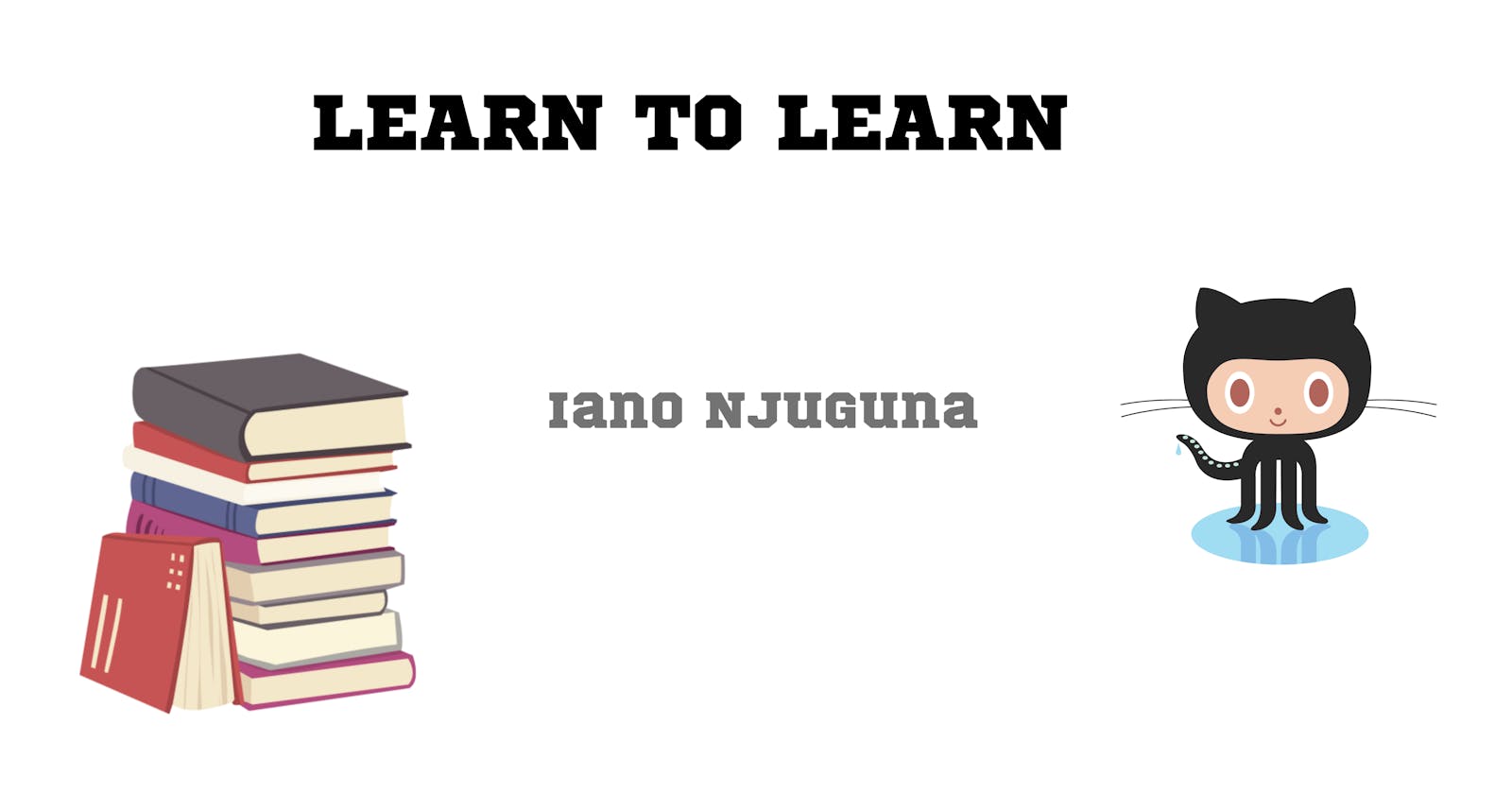A career in software engineering can be overwhelming, especially if you're just starting. This is further aggravated by the fact that there's a variety of fields you can major in and this is something I have addressed in a previous article.
Today's article is about the learning process. The truth is, you won't be successful in this field and life in general if you don't take the time to learn new technologies and relearn old concepts, personal finance, fitness, health, etc.
This begs the question, "How do I learn?"
Is there a one-size-fits-all learning technique that'll help everyone upscale? No, there aren't but there are a few tips that can help you with learning at your own pace to successfully achieve your goals and stay focused.
Here they are:
Set daily goals for studying
First of all, you need to know what you want to accomplish each day.
Setting a clear goal will help you be consistent and beat procrastination.
The goal should be specific, easy to measure, and achievable such as: "I’ll read the Python documentation on Import and Modules and also create the skeleton and structure of my portfolio website.
Here's the catch, you don't need to reward yourself because this is something you should do naturally.
Do you reward yourself for breathing or for taking a bath? I bet you don't. Why don't you? That's the answer to why you shouldn't reward yourself for achieving your learning targets.
Create a dedicated study space
It’s easier to recall information if you’re in the same place where you first learned it, so having a dedicated space at home/school/work to learn can make your learning more effective.
Ideally, it should be a place without any distractions and if possible, make it separate from your resting area.
A clear distinction between where you study and where you take breaks will help you focus.
Schedule time to study
Choose a predictable, reliable time that you can dedicate to learning.
This helps ensure that learning won’t become the last thing on your to-do list. It should be a matter of high priority.
Tip: You can add this schedule to your preferred calendar app.
Be accountable
Tell your friends about what you learned, post your progress to your social media accounts, or blog about what you learned. This is because the best way to retain the knowledge you acquire is through teaching. After all, this helps you expose the knowledge gaps that you will address in a future session.
Also, having a community and support network of like-minded friends and family with whom you can have these kinds of discussions is key to your learning progress.
Being accountable entails minding the company you keep to.
"If the people in your circle don’t inspire you. They’re not your circle. They’re your cage."
- Andrew Tate
Actively take notes
Taking notes will promote active thinking, boost comprehension, and extend your attention span.
This is a good strategy to internalize knowledge whether you’re learning online or in a classroom.
Tip: Grab a notebook or find a digital app that works best for you and start synthesizing key points.
Do one thing at a time
Multitasking is less productive than focusing on a single task at a time.
Researchers from Stanford University found that: “People who are regularly bombarded with several streams of electronic information cannot pay attention, recall information or switch from one job to another as well as those who complete one task at a time.”
Stay focused on one thing at a time. You’ll absorb more information and complete your learning with greater productivity and ease than if you were trying to do many things at once.
I have tackled this further in this article:
Two things I'd recommend for code newbies
Take breaks
Breaks are important. Resting after learning is critical to high performance, knowledge assimilation, and a great attitude.
If you find yourself working on a challenging problem without much progress for an hour, take a break.
The break can be taken by taking a walk, taking a shower, or even talking with a friend. The purpose of a break is to help you relax, re-energize and even give you new ideas on how to tackle the project.

